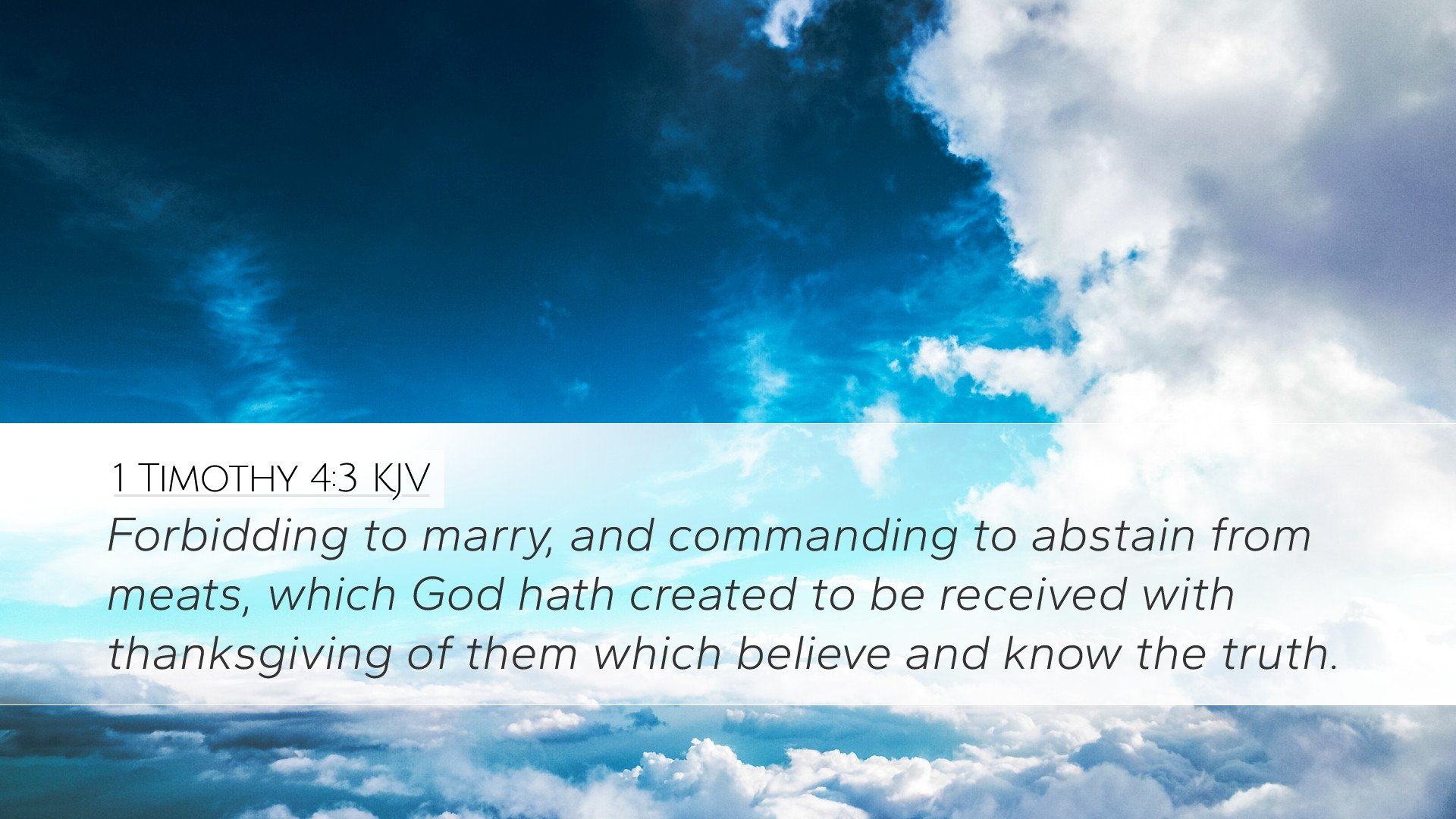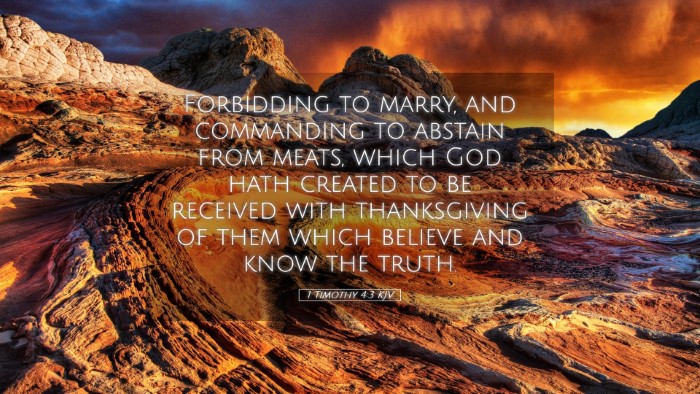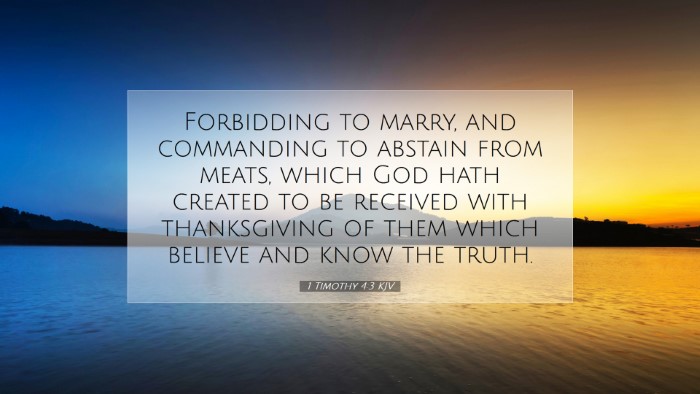Old Testament
Genesis Exodus Leviticus Numbers Deuteronomy Joshua Judges Ruth 1 Samuel 2 Samuel 1 Kings 2 Kings 1 Chronicles 2 Chronicles Ezra Nehemiah Esther Job Psalms Proverbs Ecclesiastes Song of Solomon Isaiah Jeremiah Lamentations Ezekiel Daniel Hosea Joel Amos Obadiah Jonah Micah Nahum Habakkuk Zephaniah Haggai Zechariah Malachi1 Timothy 4:3
1 Timothy 4:3 KJV
Forbidding to marry, and commanding to abstain from meats, which God hath created to be received with thanksgiving of them which believe and know the truth.
1 Timothy 4:3 Bible Commentary
Commentary on 1 Timothy 4:3
Verse Context: 1 Timothy 4:3 states, “Forbidding to marry, and commanding to abstain from meats, which God hath created to be received with thanksgiving of them which believe and know the truth.” This verse forms part of Paul’s exhortation to Timothy about the challenges facing the Christian faith in Ephesus.
Overview
This commentary assembles insights from notable public domain sources, including Matthew Henry, Albert Barnes, and Adam Clarke. The purpose is to provide a comprehensive understanding of 1 Timothy 4:3, highlighting theological themes, historical context, and practical applications.
Theological Insights
-
Warnings Against False Teachings:
Paul’s warning to Timothy revolves around the rise of deceivers in the church who were propagating ascetic doctrines. Matthew Henry notes that forbidding marriage and certain foods suggests a legalistic approach that contradicts biblical freedoms and the grace of God.
-
Doctrine of Creation:
Albert Barnes emphasizes that the foods mentioned as created by God are to be accepted with gratitude. This reflects the understanding that God’s creation is good and meant for enjoyment. The prohibition of these foods indicates a misunderstanding of God’s intentions and the nature of His gifts to humanity.
-
Importance of Thanksgiving:
Adam Clarke highlights the necessity of receiving God’s provisions with thanksgiving. This attitude of gratitude aligns the believer’s heart with God’s purpose and recognizes His sovereignty over creation.
Cultural and Historical Context
In the context of first-century Ephesus, various heretical groups were emerging, introducing elements of Gnosticism and strict asceticism. Such groups often promoted the idea that physical pleasures, including marriage and food, were inherently sinful. This was a drastic departure from the teachings of the early Church, which taught that marriage is honorable and that food is sanctified by the Word of God.
Practical Applications
-
Embrace of God’s Good Gifts:
Believers today are reminded to embrace the good gifts of God with joy and gratitude. Recognizing the blessings of marriage and food fosters a healthy understanding of God’s creation.
-
Discernment in Teaching:
Clarke encourages Christians to be discerning regarding teachings that stray from Scripture. Pastors and theologians should critically evaluate doctrines that limit God’s gifts or promote legalism.
-
Promoting Healthy Fellowship:
The verse also calls for community within the church to be characterized by acceptance and thankfulness for the diversity of God’s gifts, leading to spiritual growth and unity.
Conclusion
1 Timothy 4:3 serves as a significant verse that not only addresses early church issues but continues to have relevance today. The insights from Matthew Henry, Albert Barnes, and Adam Clarke provide a profound understanding of the complexities surrounding ascetic teachings and encourage a balanced, biblically grounded approach to both doctrine and practice. Acknowledging God's gifts and rejecting unnecessary restrictions can lead to a vibrant, thankful community of believers.


